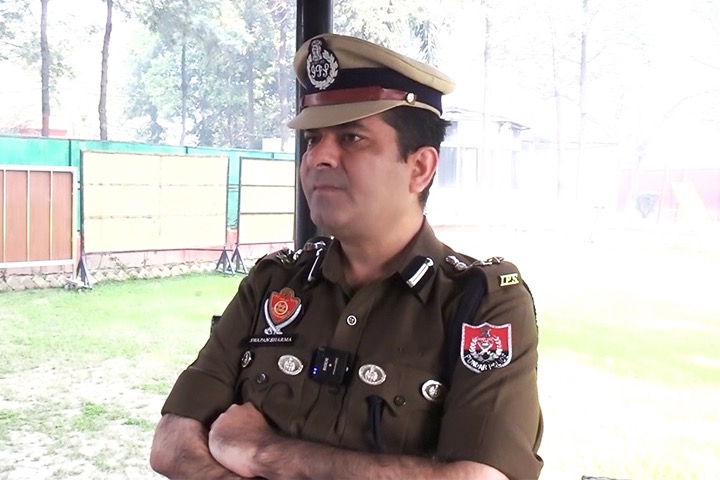

Amritsar: Pakistan’s notorious spy agency ISI is exploiting the poverty of India’s border villagers some of whom are desperate to make quick money despite the high risk involved in the cross-border drug smuggling that runs into crores of rupees.
Senior Superintendent of Police (SSP) Swapan Sharma who looks after 104 border villages falling on the main smuggling route said, “Our investigations into drug smuggling cases establish that a trafficker has no other concern but to make a fast buck, his socio-economic position comes later.”
Sharma explains there are 5 stages in the present day drug smuggling racket. At the top is the ISI-linked handler based abroad in the US, Canada, Australia, the UK or Italy who has contacts in Punjab. He arranges supplies of heroin, known as ‘Chitta’ (meaning white in Punjabi) locally, from Afghanistan via Pakistan.
Interestingly, the police have learnt from experience that on Fridays (Juma) smuggling is paused for a day as the Muslims pray on this day. All the drone intrusions occur on days other than Fridays.
In the second stage of the smuggling network is a Pandhi (foot traveller) who receives directions on the telephone, using virtual internet numbers, from the handler. The Pandhi is asked to go to a particular site to retrieve the specified quantity of heroin from near the international border. A Pandhi is paid between Rs 2000 to Rs 5000 per one-kilogram packet of the drug he retrieves.
In the third stage comes the carrier having a vehicle who does not know the antecedents of the Pandhi and vice versa but collects the consignment from a pre-decided place as conveyed by the handler. He gets about Rs 50,000 per packet of one kilogram. The carrier is responsible for carrying and delivering the contraband to the wholesaler stationed at a far-off city kije Delhi or Mumbai. If caught mid-way, the handler abandons him.
Also Read: Security forces foiling Pakistan’s desperate bid to push drugs into Punjab
In the fourth stage, the wholesaler is responsible for the onward retail distribution of the drug on a cash basis. The buyers include individual consumers or traffickers from other cities or regular big-time customers in Delhi, Mumbai, Lucknow etc. The money thus earned gets shared between the wholesaler and the NRI handler. In case of any dishonesty on the part of anyone down the line, the handler delivers a secret message to the police to expose the cheat.
Tejbir Singh Hundal, Superintendent of Police, says the money generated is sent by the wholesaler to the handler, using ‘hawala’ channels. In some rare cases internet banking is also used that is linked to dummy bank accounts opened in and operated from some banana republics.
SSP Sharma says that drones have now replaced the conventional methods of smuggling. The delivery and distribution method remains the same. At times ISI sends modern pistols and revolvers as special gifts to the wholesaler and carrier along with the contraband consignment. They may retain the weapon or sell it in the grey market to make money.
Union Minister of Ports, Shipping and Waterways, Sarbananda Sonowal, said on Monday that the number…
The inhabitants of Pakistan-occupied Jammu and Kashmir (PoJK) have been enduring years of neglect as…
The Defence Research and Development Organisation (DRDO) is set to make a significant impact at…
Cyprus President Nikos Christodoulides and Prime Minister Narendra Modi on Monday viewed the mountains near…
Cyprus President Nikos Christodoulides said he and Prime Minister Narendra Modi discussed expanding bilateral ties…
Prime Minister Narendra Modi said on Monday that India and Cyprus will develop a strong…